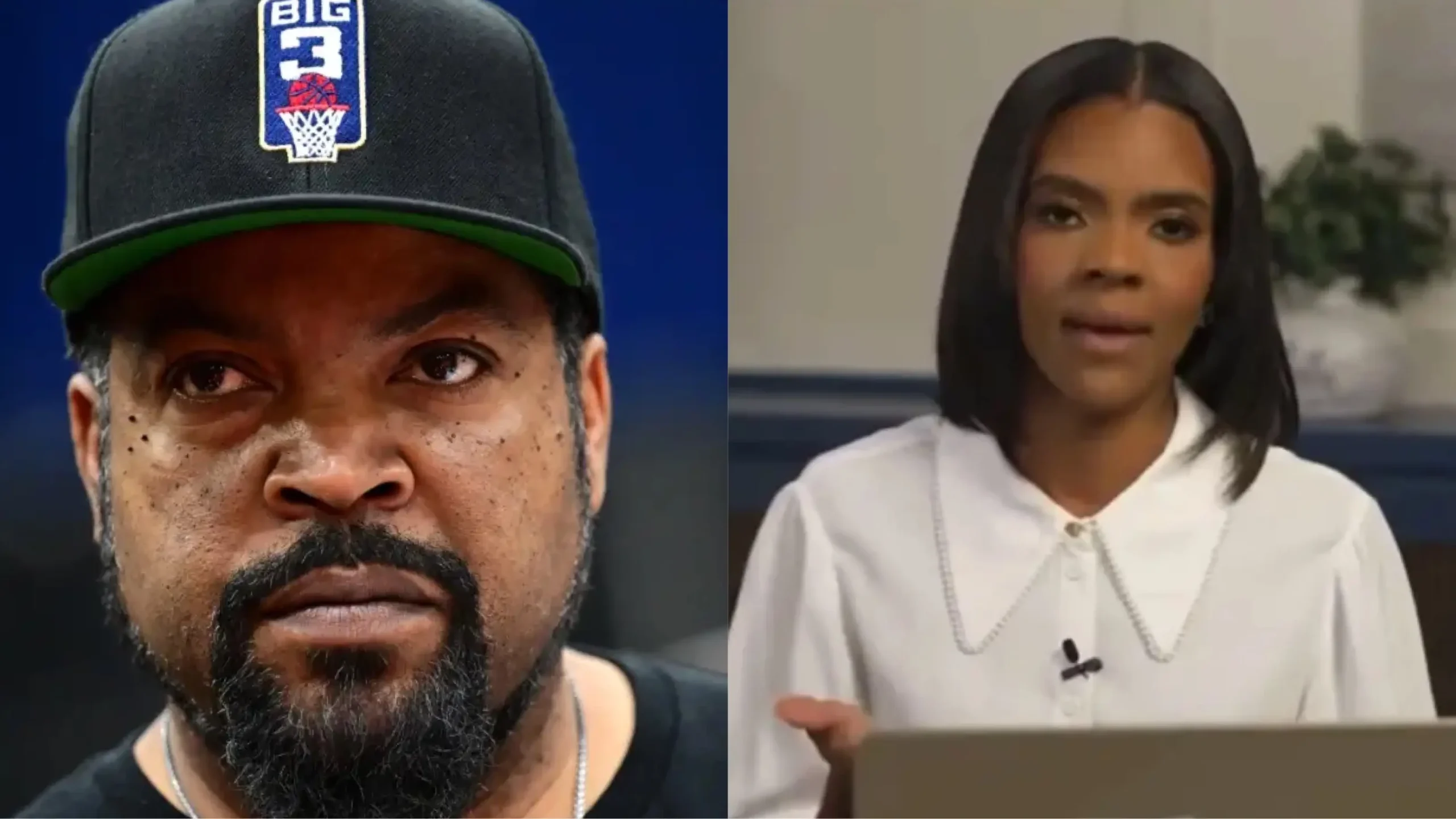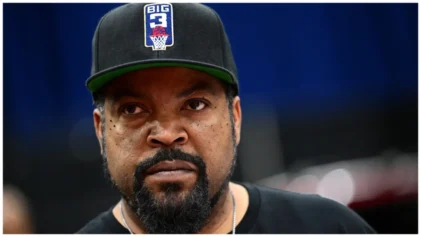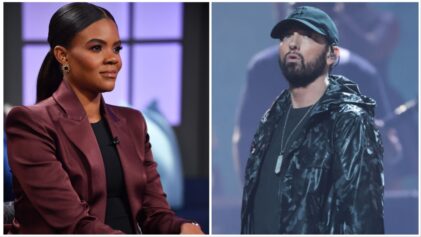Who created gangsta rap? According to conservative commentator Candace Owens, the government is behind the creation of gangsta rap, a genre born from the harsh realities of Black and brown communities in California during the ’80s and ’90s. In her view, it was part of a deliberate effort by federal agents to undermine Black culture and values. But one of its founders puts the blame on the industry and private prisons.
Is either wrong?
The debate ignited on the X platform on Friday, Sept. 20, after Owens tweeted, “Gangster rap was never black culture. It was created by the Feds, who proffered deals to homosexual black men in prison and then turned them into artificial celebrities.”
She continued, “The goal was to create false idols to destroy black American values. I will never change my mind on this.”
Gangster rap was never black culture. It was created by the Feds, who proferred deals to homosexual black men in prison and then turned them into artificial celebrities. The goal was to create false idols to destroy black American values.
— Candace Owens (@RealCandaceO) September 20, 2024
I will never change my mind on this.
Owens’ controversial post quickly caught the attention of fans, one of whom tagged NWA founder Ice Cube, one of gangsta rap’s most prominent pioneers.
In response, Ice Cube, widely regarded as one of the founding fathers of the genre, set the record straight: “We called it Reality Rap. The industry coined it Gangsta Rap. The fans wanted gangsta rap and that’s what they got. The Feds didn’t write none of my sh—t. I’m a real MC.”
We called it Reality Rap the industry coined it Gangsta Rap. The fans wanted gangsta rap and that’s what they got. The Feds didn’t write none of my shit. I’m a real MC. https://t.co/8ILsp4sFhw
— Ice Cube (@icecube) September 20, 2024
His response led some observers to conclude that Cube didn’t fully reject Owens’ argument, leaving open the possibility for it to be true.
One commenter wrote, “So he is not saying Candace is wrong, but Cube always kept it a buck.”
Another pointed out, “Cube mentioned the industry, not the Feds.”
The debate hints at a broader conspiracy theory that record labels and the prison industrial complex are interconnected, which the rapper has been pushing.
Perhaps the fans were onto Cube’s carefully crafted statement, showing that he too believes the conspiracy that there are forces that allowed gangsta rap to dominate the music scene for easily the ten years between 1988 and 1998.
The X user commented on Owens’ post and shared a clip from the “Club Random with Bill Maher” podcast from 2023, where he says that the “Same people who on the labels, own the prisons.”
However, the clip does not present the full conversation, where he later says, “They’re not actually running the labels, they have financial interests” in both the music industry and the prison industrial complex.
Maher helped the “Friday” filmmaker to flesh out his theory, saying, “If they have financial interest in the prisons, and your theory, if I’m following correctly, is that the kind of stuff in rap lyrics works as a funnel to get people inspired to do the kind of things that would get them in prison… right like for example writing a lyric ‘f—k the police,’ might get somebody arrested and sent to prison.”
“That might get somebody arrested and sent to prison,” the artist said, clearly noting that the host was referencing his 1988 song “F-ck tha Police.” “That’s just one example, one record that the record company did not manipulate, you know. That’s pure artistry.”

When asked if a record company ever manipulated him, he said “no,” explaining that he was always an independent artist and that he never had an A&R to suggest that he create certain types of songs.
“I wouldn’t let A&R a— in my studio,” he said, adding, “I never had anybody A&R me but Dr. Dre.”
According to cultural critic Davey D and advocacy group Hip-Hop For Change, three companies — Warner Records, Universal Music Group, and Sony Music Group — control 90 percent of hip-hop music. Meanwhile, private prison companies like CoreCivic and GEO Group control most private prison beds in the U.S. The writer and organization alleged that two sectors share common shareholders, such as Vanguard and BlackRock.
But they were partially wrong.
In 2019, CNN reported that Vanguard and BlackRock are among the largest investors in private prisons.
However, according to Vanguard and BlackRock, while these firms hold shares in over 500 companies, including major entertainment players like Disney, Live Nation, and Fox, they were not invested in any of the top three music distribution and recording companies as of 2021.
There is no evidence that the FBI created “gangsta rap,” as stated by Owens. But conspiracy theories about government involvement in the genre gained traction after an investigation into the CIA’s role in facilitating cocaine sales to Los Angeles street gangs in the late 1980s.
The profits from these drug sales were allegedly used to fund a Latin American guerrilla army in Nicaragua, known as the Contras, during the Iran-Iraq war, as reported by the Department of Justice. The complex scheme also involved illegal U.S. arm sales to Iran during the Persian nation’s eight-year with Iraq in the 1980s, sales whose proceeds the CIA used to fund the Contras fight against the Nicaraguan government. This theory grew after the San Jose Mercury News published articles claiming the government intentionally funneled crack into Black neighborhoods.
While the investigation later concluded that these reports exaggerated the facts, it did acknowledge ambiguities in the case. The government report noted that lingering suspicion would remain due to the unanswered questions.
Gangsta rap, which emerged during the crack epidemic, became a form of expression that directly addressed the devastation of Black communities by drugs and law enforcement.
Many believe that the rise of gangsta rap was influenced by external forces to glorify crime and perpetuate a cycle of incarceration.
The questions are, who really are these forces and, as “Good Day” rapper contends, is gangsta rap (or reality rap) a reflection of harsh realities he experienced or a creation of federal or industry manipulation?


